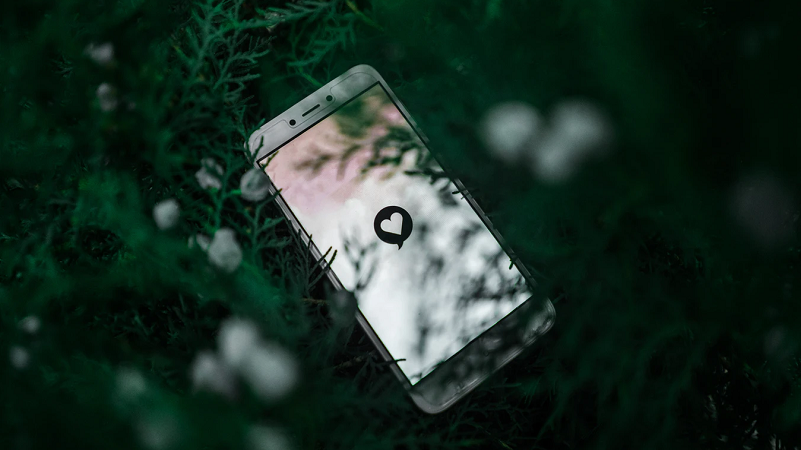Online Dating in 2020 In a somewhat surprising turn of events. Online dating apps such as Tinder and Bumble and online dating services such. As OkCupid have all seen an uptick in new client sign-ups during the pandemic.
While dating might not seem like an activity that is conducive to a global health crisis. When social distancing measures are in place. Many people are turning to online dating. As a means to generate connections and perhaps stave off any COVID-19 induced loneliness.
Some online daters note that they have less intention of actually meeting. People in person at this time than they do finding entertaining ways to while away a few hours.
But how safe is online dating right now?
 Romance Scams
Romance Scams
As the old saying goes, idle hands are the devil’s plaything, and in this context. It could be applied to mean people with too much time on their hands. Who are thus likelier to fall into situations that are emotionally unhealthy or even dangerous.
Individuals who are normally savvy to online scams are falling victim to romance scams. Lured in by con artists posing as love interests.
Romance scams are nothing new, but during the pandemic. When tensions and emotions are running high for many people anyway. There has been a greater number of successful scams. According to the Houston Chronicle, these types of cons are now at “an all-time high.”
Typically, the scammer (or scammers in the plural as many works in organized teams) matches with someone online. They then carry out extensive research to find out general information about. The victim’s location, family, possible wealth, and other factors.
While the conversation may initially be conducted via the app or dating website. Tricksters swiftly move it to another method, such as text message or Messenger. Once trust is built, the con artist/s then starts asking for money, albeit not directly. More often than not, there is an “accident” or a “family emergency.”
It might seem obvious to never send money to someone you haven’t met in person. But as the BBC reports, victims are essentially blindsided and ignore red flags and nagging feelings that something isn’t right.
One victim notes: “There were red flags, but I kept denying them. You think you have found the love of your life, and invest yourself 100% into the relationship.”
Romance scams are not the only pressing threat. Here are two more considerations that warrant the attention of anyone who dips their toes into the online dating world.
Sextortion
Sextortion is the practice of using sexual images and/or videos to extort a victim for financial gain. Like romance scams, this crime is also on. The rise thanks to coronavirus and its accompanying distancing measures.
Typically, the cybercriminal will begin by generating a relationship of sorts with the intended victim. They will be available to chat and present themselves as perfectly nice and normal. After the conversation progresses for some time, be it weeks or even months, sexualized chat turns into phone calls and even video calls.
Often, it is the victim themselves who makes the suggestion to switch to more visual mediums. However, once the trickster has images and/or videos of a sexual nature, they will use these to leverage the victim for their own financial gain.
Sadly, sextortion can have some very devastating consequences, and more than a few victims have taken their own lives after falling prey to scammers. Being unable to pay but highly worried about the effect these images and videos could have on their families and lives, victims may turn to suicide.
Fake Dating Apps – Online Dating in 2020
It is not only complicated love and sexual scams that online daters have to worry about in 2020, most of the cyber threats that exist in other sectors are present in the online dating scene too. And this included fake applications.
Fraudulent apps are designed and released by cybercriminals for several reasons. One example is that fake apps are an excellent way for threat actors to trick users into handing over personal information. This information can then be used for ill-gotten gains. Such as when a scammer uses a fake banking app to garner real bank account information.
Another reason cybercriminals use fraudulent apps is as a vector for digital threats such as malware and/or viruses. Once the app is on a user’s device. It can garner information and data, be used to transmit a virus or act as a conduit to the user’s other accounts. According to Tech crunch, fake dating apps are the number-one source of malware in Africa.
Daters don’t just have to worry about false apps masquerading as the real deal either. Tinder messages with links can contain malware, as can text messages, emails, and any other form of computer-mediated discourse.
Contending with the threats above is a matter of both common sense and standard safe online practices. Below are some steps daters can take to mitigate the risks
Staying Safe When You Online Date – Online Dating in 2020
- Shield your true location and don’t reveal personal details. Remember that threat actors can use these against you. Additionally, downloading a secure VPN app is the perfect way to hide your IP address and thus your location.
- Never strip in front of a web camera, send nudes, engage in video sex, or send sexually explicit videos of yourself to strangers. These activities should be reserved for people you know very well personally. And even then a degree of caution is wise.
- Do not send money to anyone you’re in an online relationship with. It doesn’t matter if you’ve known them online for a year. If you have never met in person, there’s a chance your relationship is more smoke and mirror than substance.
RELATED ARTICLE: The Most Effective Method to Make My Ex Boyfriend Want Me Back
- Watch out for the tell-tale signs of a romance scam such as money appearing in your bank account which you need to redistribute, this is a scam. Accidents and emergencies when the scammer needs financial assistance are also red flags that should not be ignored.


 Romance Scams
Romance Scams











Write A Review